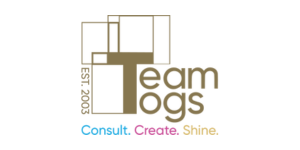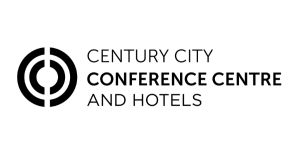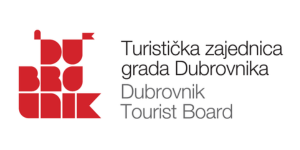CSR in the events industry
)
The events industry holds a unique position of influence, connected to all other sectors, and with the number of brilliant minds we have, the industry has the ability to make a real difference in the communities we work in.
Although CSR is on everyone’s radar, I believe there is still a huge amount of education needed to ensure it’s not just done as part of a tick-box exercise but has real meaning and impact.
On the whole, the industry has taken great steps in sustainability, energy, waste and environmental policies and actions, which does sit within CSR, but the broader socioeconomic factors are not yet being tackled well enough or widely enough, and are not yet embedded in the ethos of venues, associations, agencies and corporations.
The younger generation are willing to spend more money on ethical brands, and to consider the values and ethos of a potential employer as equally if not more important than salary and job perks. This means they have an expectation for companies to not just have a CSR policy, but to have an authentic corporate social reputation that goes far deeper than a document that sits on their website and is presented as part of a tick-box exercise for clients.
This doesn’t just relate to event buyers and their purchasing decisions, but to recruitment and retention – in the future companies will find it impossible to hire and retain the best talent if they are not seen as ‘good people’.
The events industry is in a unique position to be a leader in CSR and to share best practice and inspire other industries; but the responsibility is everyone’s and it can’t be left to one sector or segment of the industry to make true progress. The following steps will help ensure the industry achieves what it is capable of when it comes to CSR.
1. Creating a culture of CSR
In many organisations, CSR activity is driven by socially conscious individuals who are passionate and want to make a difference. These people are great champions but need to feel recognised and supported by a business culture that celebrates the value of CSR. Businesses need to have clear values and live by them in order to have integrity and authenticity; which will ultimately lead to trust. While younger people may be pushing for better CSR, there is also an older generation of event professionals who have had fantastic careers and are now ready to give something back, and by empowering younger people within an organisation will be able to help drive the change.
2. Mechanisms for support
The UK events industry currently has no real framework for CSR and efforts are often very disjointed – a company holding an event, the agency organising it and the venue hosting it may all want to support CSR initiatives, but may never speak to each other about how they can collaborate to achieve more. There are also many companies that want to do more community engagement but don’t know how or where their support could be used. Charity work can also be hard to facilitate for events and venues that don’t already have established channels.
Practical advice needs to be made available on engaging communities and partnering with local organisations, with clear guidelines on options and a defined framework that supports event professionals at all levels. There need to be more intermediaries like Meeting Needs that can facilitate meaningful projects that achieve real benefits and can also carry out the due diligence to ensure time and money is being spent in the right places.
3. Partnerships are key
Only by all parties coming together will the greatest strides forward be made. Corporates have the understanding of what they want their event to achieve from a CSR point of view, venues have the links to local communities, charities are on the ground seeing where the need is and destinations have a unique oversight of everything that is happening; by bringing together all of this knowledge far greater results can be achieved.
4. Championing the industry
The events industry has the ability to pioneer change and create positive momentum, making a real impact in local communities, but the industry needs to do more to communicate this. Individual success stories where a venue or company has carried out a project that makes a difference need to be shared to inspire others; associations like the mia need to play a role in knowledge sharing and convergence of ideas; the industry needs to be telling government what it’s doing and what they need to do to support it. It’s fundamental to communicate this better so that CSR in this industry, and others, can evolve and improve.
5. Tell stories to inspire
Real stories of things that have worked are one of the most inspirational tools available to encourage action. Throughout the roundtable, stories were shared that inspired – the DMC that had a 50-cover lunch booked in a five-star restaurant that was going to go to waste, but was offered for free to the Chelsea pensioners and their carers; booking a London taxi to transport the leftover food waste from an event to people who would eat it; hosting a collection point for event attendees to donate coats to keep homeless people warm in winter, that received over 700 donations. Stories like these could be the catalyst for others taking action and need to be shared as widely as possible.
6. Encourage individual interests
While companies need to support causes that are true to their values and ethos, it’s important not to just have a ‘chosen charity’ and expect all employees to support it. People will always be most highly motivated to support a cause close to their own heart, which is where initiatives like paid volunteer days, which can be spent doing anything you care about, can be extremely rewarding. Organisations can also celebrate what individuals are doing, including projects they support in their own time, by sharing their stories, or surveying staff to find out what they support to create a shortlist of potential beneficiaries for future fundraising or volunteering projects.
7. The event industry can lead
The event industry is perfectly placed to lead a CSR revolution, increasing understanding and changing culture. Every day, events are held where senior business leaders who are decision makers or have influence within their companies are coming together, and many of these people would not just be receptive to, but hungry for ideas and solutions for improving their own CSR. Even in a low-key way, best practice can be shared and events can lead by example.
8. Reputation, not responsibility
The future of CSR will be building corporate social reputation – not just creating a policy document, but a reputation that is built over time and has real authenticity. People will no longer ask what you can do as a one-off activity, but will buy on reputation, looking at your track record and everything you’ve done cumulatively. Social media will provide the transparency that means there’s nowhere to hide, companies will be under the microscope and if they’re not living by their promises, they will be found out. While that means greater scrutiny than ever before, companies that are leading in CSR will see the benefits as buyers put their budgets behind their values.

































































